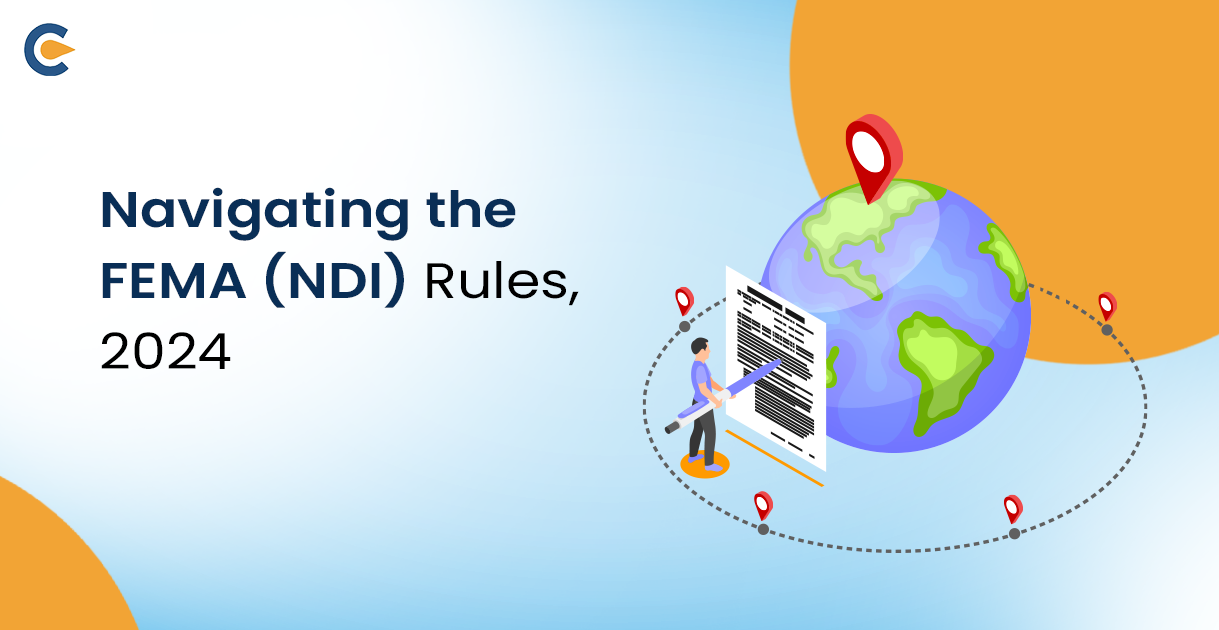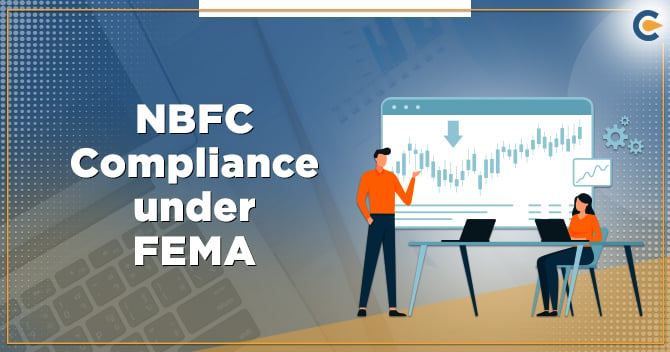The Foreign Exchange Management Act was created by the Central Government of India to promote international payments and cross-border commerce in India. In 1999, the Foreign Exchange Regulation Act (FERRA) was replaced by the Foreign Exchange Management Act (FEMA). Major economic changes were established under the Foreign Exchange Regulation Act (FEMA) in order to address all of the shortcomings and flaws of the Foreign Exchange Regulation Act (FERRA). In essence, FEMA was implemented to de-regularize and liberalize India’s economy.
What are Non-Debt Instruments?
In order to understand the FEMA (NDI) Rules, 2024, we first need to understand what is included under the non-debt instruments. The exhaustive list includes:
- All equity instrument investments made in incorporated businesses, whether they are listed, unlisted, public, or private:
- Financial involvement in an LLP;
- All investment instruments recognized under FDI policy that are periodically notified;
- Purchasing shares of infrastructure investment trusts (INVITS), real estate;
- Investment trusts and alternative investment funds (AIFs);
- Investing in mutual fund or exchange-traded fund (ETF) units that allocate above 50% of their capital to equity:
- The lowest tier of the securitization framework, or the equity tranche;
- The direct purchase, sale, or transaction of real estate;
- Making a trust contribution, and;
- Depository receipts issued in relation to equity instruments.
FEMA (NDI) Rules, 2024
Due to the fact that selling shares overseas would need raising money from non-Indian residents, the Ministry of Finance notified the FEMA (Non-Debt Instruments) Amendment Rules, 2024, which will amend the FEMA (NDI) Rules, 2024. The operational instructions for listed businesses to list their equity shares on approved stock exchanges are also anticipated to be released by SEBI.
The FEMA (NDI) Rules, 2024, which alter the Foreign Exchange Management (Non-debt Instruments) Rules, 2019, were notified by the Ministry of Finance on 24-1-2024. The FEMA (NDI) Rules, 2024, become operative on January 24, 2024. Following are the key points of FEMA (NDI) Rules, 2024:
- The first amendment in the FEMA (NDI) Rules, 2024, was thatthe term “International Exchange” was defined as any permitted stock exchange in any of the authorized jurisdictions indicated in Schedule XI of these Rules.
- A previous definition of “Listed Indian Company” was an Indian company whose debt or equity instruments were listed on an approved Indian stock market. It can now be registered on an international exchange in addition to the Indian stock exchange. This was one of the key additions to FEMA (NDI) Rules, 2024.
- The next rule of FEMA (NDI) Rules, 2024, is thatsubject to certain restrictions, permissible holders are permitted to buy or sell equity shares of Indian public companies that are listed or plan to be listed on international exchanges.
- Public Indian companies are permitted to offer equity shares on foreign exchanges, provided that they adhere to certain guidelines and refrain from engaging in certain activities or exceeding sectoral limitations.
- Permissible Holder term refers to a person who owns equity shares that are listed on an international exchange. Citizens of nations that border India on land are subject to restrictions.
- To issue or offer equity shares on foreign exchanges, public Indian corporations, current shareholders, listed companies, and public unlisted Indian companies must fulfil certain requirements.
- The next rule, as per FEMA (NDI) Rules, 2024, is according to the relevant legislation, the price at which the equity shares are issued to domestic investors in a commensurate manner will not be less than that amount.
- Public Indian firms must abide by all applicable rules regarding the issuing of equity shares, including those pertaining to agreements with Indian and foreign depository services as per the FEMA (NDI) Rules, 2024.
- As per the FEMA (NDI) Rules, 2024, public Indian corporations that are listed on foreign exchanges are required to make sure that the authorized holder or their custodian may exercise their voting rights on equity shares directly.
Ineligibility of Companies in Listing
Following are the companies that are not eligible to be listed as per the LEAP Rules:
| Section 8 Companies |
| Companies that have a negative net worth |
| Companies with partly paid shares |
| Nidhi Company |
| Companies that are limited by guarantee |
| Companies that have accepted deposits from the public |
| Companies that have defaulted in the AOC-4 & MGT-7 filling |
| Companies that have defaulted in dues payments to any of the creditors and two years have not passed from the default period are made good. |
Following are the companies that are not eligible as per IFSC rules and regulations:
Any of the issuer, promoter group, controlling shareholders, any of the promoters, directors, or selling shareholders should not have been
- A willful defaulter, or
- An economic offender in a fugitive state, or
- Debarred from accessing the market.
Following are the companies that are found not eligible under the NDI rules in India:
| Fresh Issuance Case (Public Indian Company/ /Promoter Group/Promoter Group/Directors are) | Offer For Sale By Existing Shareholders Case (Public Indian company/ existing holders are) |
| A willful defaulter | A willful defaulter |
| Debarred from accessing the market | Debarred from accessing the market |
| An economic offender in a fugitive state | An economic offender in a fugitive state |
| Under investigation or inspection under company laws | Under investigation or inspection under company laws |
| Association with a debarred form accessing market company | Association with a debarred form accessing market company |
FEMA Compliance with Corpbiz
With Corpbiz and our team of experts, we can guide and assist you in all procedural and regulatory requirements as per FEMA for your company. Our experts assist in post-compliance for RBI and FEMA-related services. With FEMA (NDI) Rules, 2024, as the recent amendment, contact our experts for FEMA compliance.
Frequently Asked Questions
What are the guidelines set forth by FEMA?
The goals of FEMA are to support foreign exchange in the Indian market through a methodical enhancement and continuance of external commerce and payments. It describes all of India's foreign exchange transactions' processes, documentation, and commercial dealings.
What are the benefits of the FEMA Act?
The Reserve Bank of India, in cooperation with the Indian government, is empowered by the FEMA Act to determine the types of capital account transactions and the exchange limits that apply to them. It contains clauses pertaining to the progressive opening up of capital account operations.
Who controls the FEMA?
FEMA is a regulatory framework that permits the Central Government and the Reserve Bank of India to enact foreign exchange laws and rules that are consistent with India's foreign trade strategy.
What is the RBI's FEMA Act?
The Reserve Bank is allowed to create laws to forbid, limit, or control the purchase or transfer of real estate in India by specific individuals who are not Indian citizens, thanks to the Foreign Exchange Management Act of 1999 (FEMA).
What role does the amendment have?
The amendment expands investment prospects by introducing “International Exchange,” which permits Indian firms to list on accredited international stock markets.
What does the amended Rules' Chapter X of FEMA (NDI) Rules, 2024 entail?
Under the Direct Listing Scheme, Chapter X enables eligible holders to engage in Indian firms that are listed or want to be listed on foreign markets.
Which requirements are there for the Direct Listing Scheme?
The requirements include adhering to sectoral caps, listing on designated foreign markets, and making sure equity shares are dematerialized in accordance with the Indian Stock Exchange.
Who qualifies as a “Permissible Holder”?
A permissible holder is a person who owns equity shares that are listed on a global market, including the beneficial owner, subject to limitations on citizens of nearby nations.
What duties do Indian businesses have in light of the FEMA (NDI) Rules, 2024?
To ensure regulatory adherence, companies must abide by a number of regulations, such as the Securities Contracts Act, SEBI Act, Foreign Exchange Management Act, and others.
Which pricing rule is in effect when equity shares are issued?
The price at which equity shares are offered to domestic investors shall not be less than the amount stipulated by local legislation for a comparable method of issuance.
Read Our Article: FEMA Compliance Checklist For Startups











